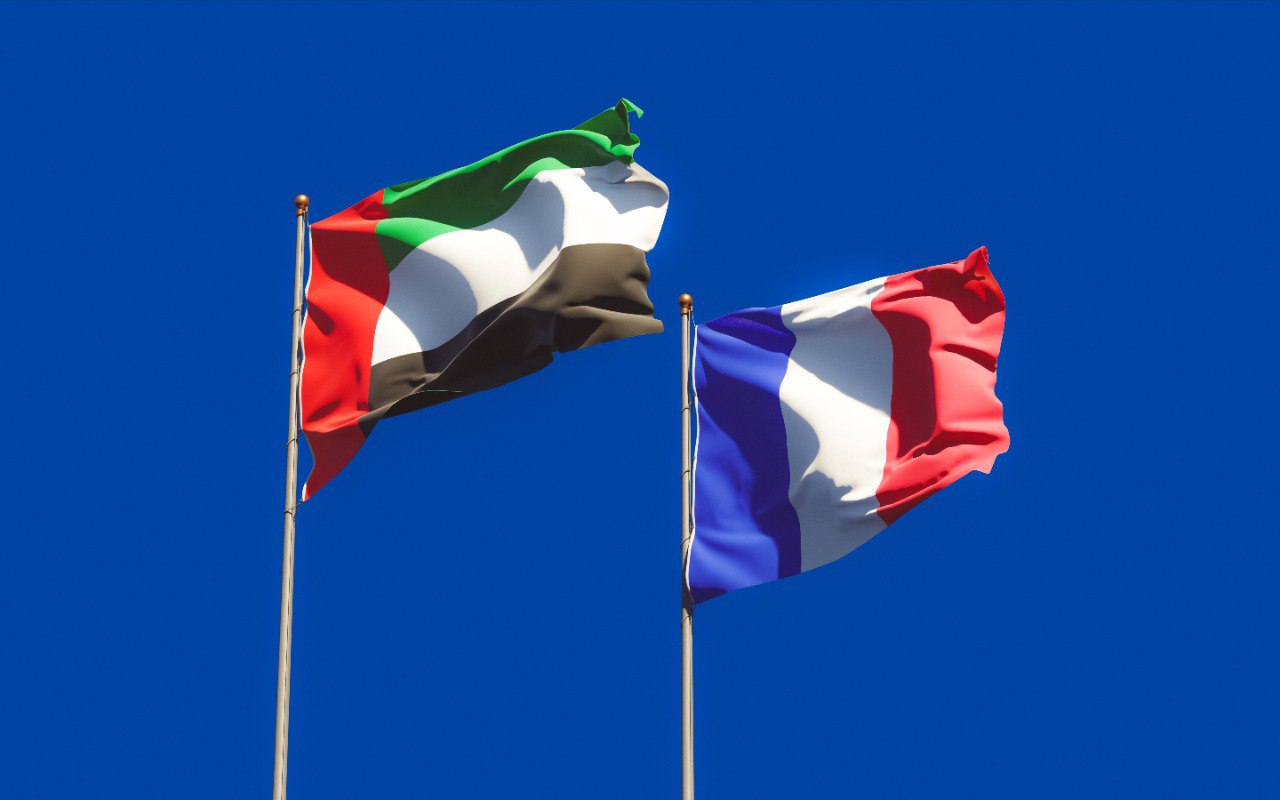The Gulf state was the target of several disinformation campaigns that have dated back to the 2017 regional crisis.
The United Arab Emirates has been “discreetly” lobbying a key partner in France in an effort to present Qatar in a negative light, a new investigation by Orient XXI found.
Starting from 18 July, the French news outlet began investigating possible UAE lobbying attempts in France, triggered during the visit of the UAE’s leader, Sheikh Mohamed Bin Zayed (MBZ) to Paris.
According to its findings, the probe found indirect lobbying was carried out through various entities, including the French subsidiary of the British Project Associates, media outlets, as well as think tanks.
The investigation also outlined the UAE’s push to promote Qatar’s alleged links to the Muslim Brotherhood, regularly accusing it of financing the group and also associating the movement “with terrorism” as part of its “cognitive war.”
“Regardless of the facts, it is no longer merely a matter of advocating a narrative,” Pierre Gastineau, editor in chief of Intelligence Online, was cited in the report as saying.
“We are dealing with a vast offensive aimed at creating a media environment which will place the public in a position where it will lend a favourable ear to a certain type of rhetoric. Asserting systematically that Qatar finances the Muslim Brotherhood and automatically associating the Brotherhood with terrorism belongs to that strategy of cognitive warfare,” he added.
The claim over Qatar’s alleged support to the Muslim Brotherhood was cited by Abu Dhabi when it cut off diplomatic ties with Doha back in 2017, triggering the region’s worst political crisis.
At the time of the rift, the UAE joined Saudi Arabia, Bahrain, and Egypt in imposing an illegal air, land and sea blockade on Qatar over claims that it supported terrorism. Doha dismissed those accusations as baseless.
While the crisis appeared to be resolved in 2021 with the signing of the Al-Ula Declaration, remnants of the crisis appeared to linger, particularly in Qatar and the UAE’s ties.
This was seen in various online campaigns that have been traced back to the UAE.
One of the most notorious campaigns included QLeaks, which was exposed by Eekad in July. The investigation found that its operational headquarters were in the Emirates.
The Orient XXI probe comes just weeks after Qatar’s Amir Sheikh Tamim bin Hamad Al Thani dismissed any links between Doha and the Muslim Brotherhood.
“There are no such links. There are no active members of the Muslim Brotherhood or related organisations here in Qatar…we are a state, not a party. We deal with states and their legitimate governments, not with political organisations,” the amir told France’s Le Point.
‘Sports influence‘
The probe also analysed political figures, most notably French Senator Nathalie Goulet, whom it had similar views to those of the UAE’s.
In a book published by Goulet earlier this year, the senator had failed to mention the use of banking systems in the UAE by 9/11 terrorists, saying “she was unaware of this information”, dismissing claims over her links or interest with the UAE.
However, the probe said Goulet presented her book in June this year in London through a trip funded by Cornerstone Global. This is the same think tank that had questioned Qatar’s hosting of the 2022 FIFA World Cup at the time of the blockade.
The first was also the centre of a New York Times expose in 2019, showing an apparent connection between its founder Ghanem Nuseibeh with the UAE.
Ghanem told Orient XXI that the article “was the subject of a legal challenge”, ruling out any contracts with the UAE.
“Nathalie and her late husband are long-time friends and we work closely together on issues of common interest, including the fight against extremism,” Nuseibeh confirmed to Orient XXI.
The publication noted it had been threatened by Nuseibeh with legal action to protect his reputation.
Another key finding was the role of Project Associates in the US, which led the “Boycott Qatar” campaign in 2017.
Citing the US Foreign Agents Registration Act (FARA) database, the French outlet highlighted Project Associates’ subcontract with disinformation company SCL Social to support the campaign.
Orient XXI also noted that the UAE National Media Council contracted the company at an amount of $250,000.
At the same time, the Daily Mail reported in 2021 that Project Associates proposed the promotion of the UAE Ministry of the Interior’s former director, Ahmed Al-Raisi to the presidency of Interpol.
In a controversial appointment, Raisi was made the police agency’s president in November last year.
Reports had listed several victims of torture under Al-Raisi, including 34-year-old academic Matthew Hedges, who was held in solitary confinement for seven months in 2018 for alleged espionage. He says he was in the UAE for research purposes.
Other victims included 29-year-old Ali Issa Ahmad, who was detained while wearing a Qatar sports jersey while in the UAE during the 2019 Asian Cup. The incident occured during the GCC crisis of 2017.







